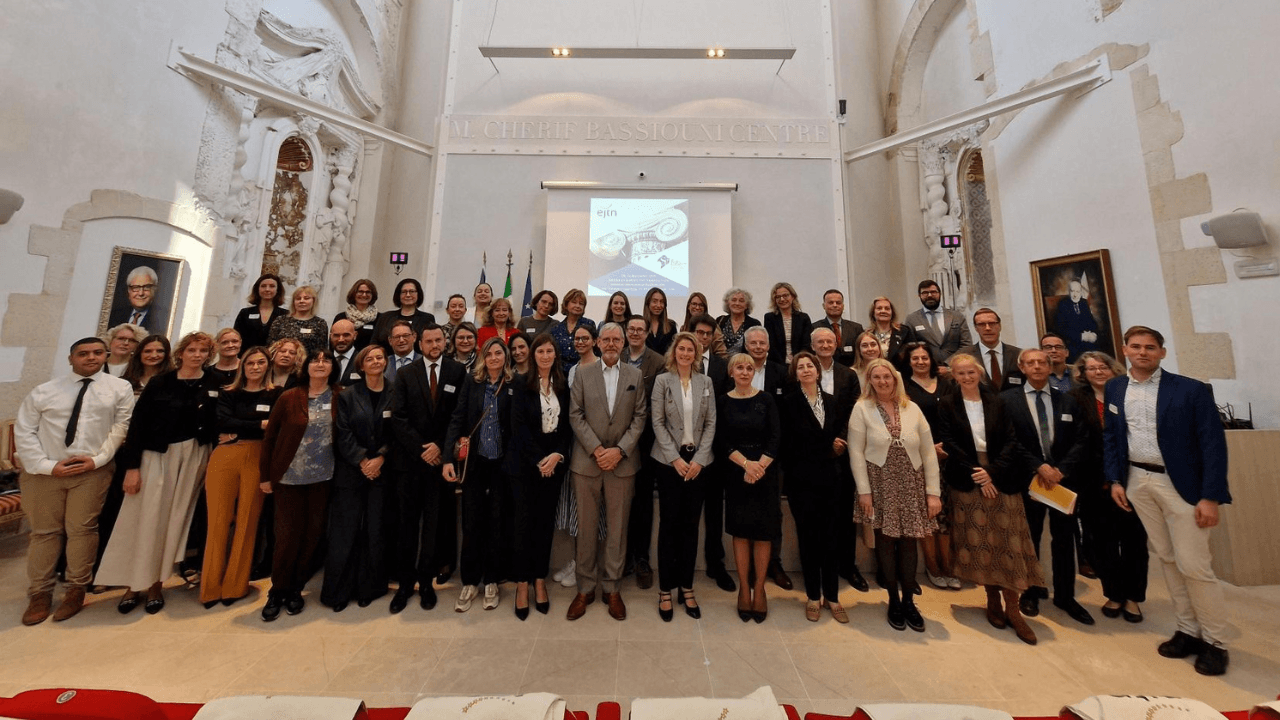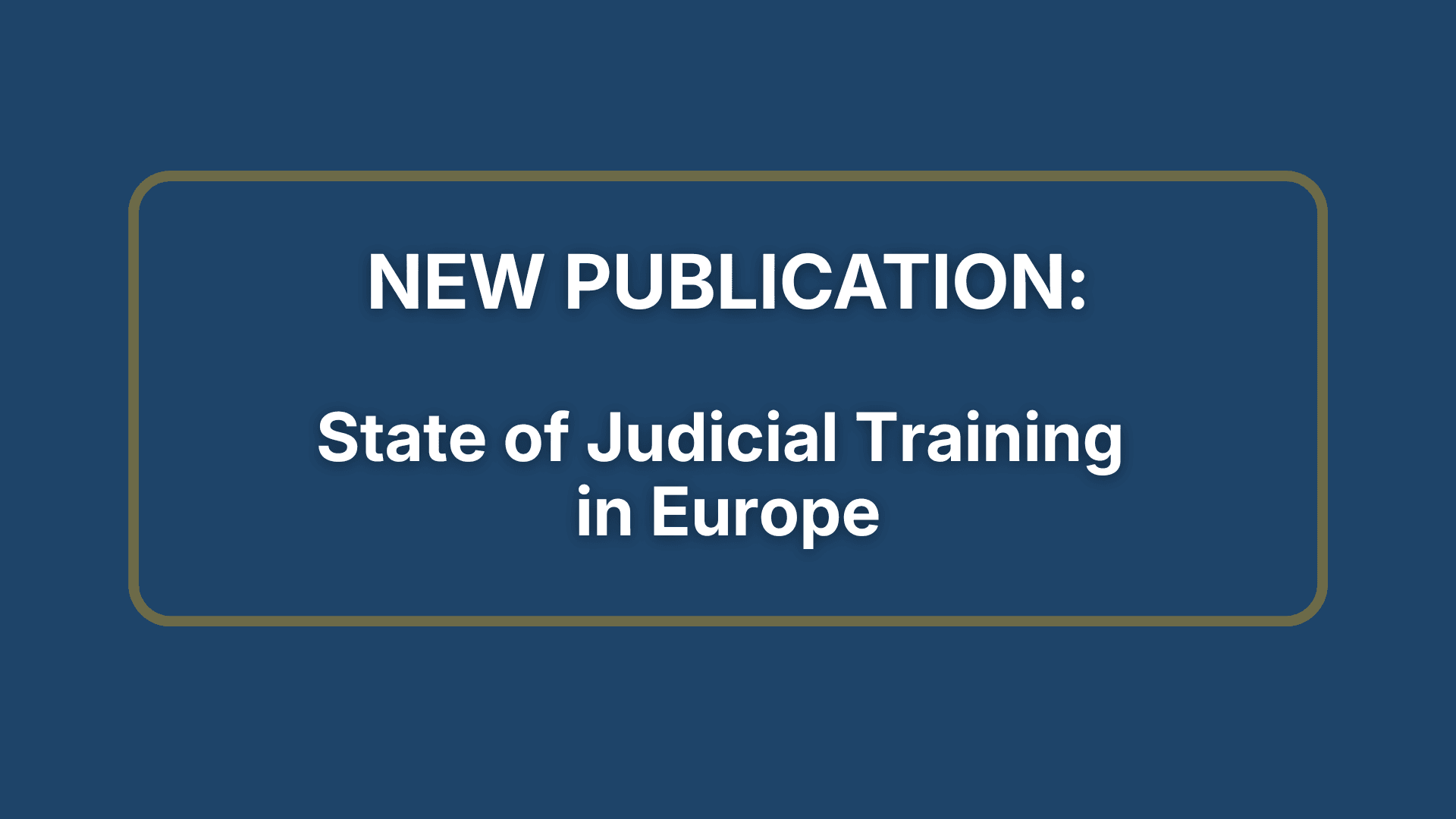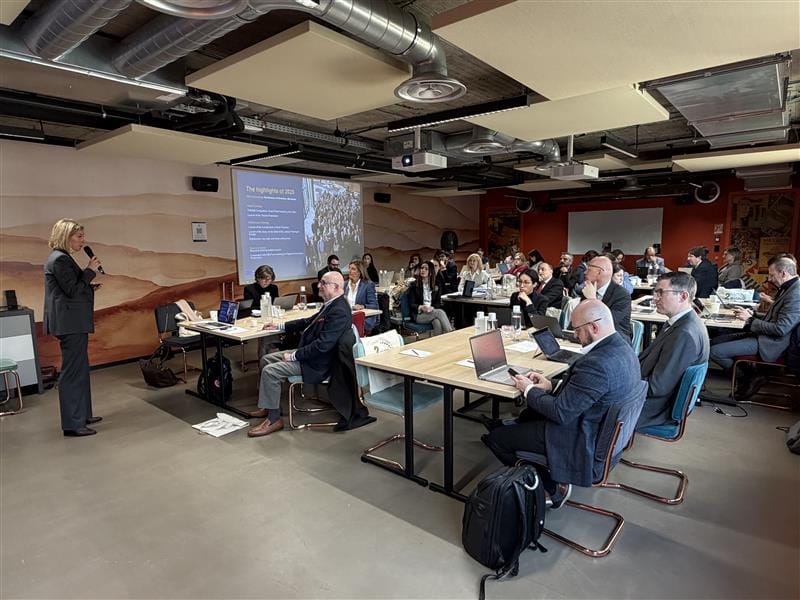The third edition of the prestigious Judges@Europe Forum took place on 18-21 November in Syracuse, Italy, hosted by The Siracusa International Institute for Criminal Justice and Human Rights.
This unique forum, which provides judges from EU Member State a confidential space to share their insights and challenges, brought together nearly 60 judges to discuss judicial impartiality. The forum addressed this important topic from different perspectives, including the impact of Artificial Intelligence and media on judicial impartiality, the adversarial procedure and equality of arms in the case law of the European courts, mechanisms that help safeguard impartiality and adapting judicial practices to modern realities. The event combined expert presentations and workshops, allowing participants to express their views under the Chatham House Rules.
Over the past years, the European judiciary has embarked on a profound journey of reflection, focusing on the essential values that underpin the judiciary’s role in upholding the Rule of Law across Europe. Since 2022, the European Judicial Training Network, together with its Members and Partners, has facilitated this reflection through a dedicated forum.
- In 2022, Freedom of Expression of Judges was explored through the lens of case law from the European Court of Justice (ECJ) and the European Court of Human Rights (ECtHR). The dialogue centered on balancing the freedom of speech with the integrity and dignity expected of judicial officeholders.
- In 2023, Sound Administration of Justice and Judicial Accountability emphasized the responsibility of judges in maintaining independence, ensuring transparency, and enhancing performance. These principles remind us that judicial independence is not a privilege but a cornerstone of justice and a safeguard of democracy. This second forum resulted into a creation of a dedicated publication on the good administration of justice in the digital era and a Rule of Law crash course done together with the HELP Programme of the Council of Europe. This course will be launched and openly accessible towards the end of December.
This year, the forum’s focus shifted to Judicial Impartiality, a value that stands at the very core of judicial integrity. Impartiality challenges judges to look inward, examining the internal mechanisms of decision-making and ensuring that their rulings remain immune to any form of external or internal pressure.
Judge Ingrid Derveaux, the EJTN Secretary General highlighted in her opening speech: “This introspective exploration comes at a time when judges face unprecedented challenges. The pervasive influence of social media, the rapid advancement of new technologies, and the increasing scrutiny of public opinion pose significant pressures. Yet, these challenges also present opportunities to reaffirm the judiciary’s commitment to fairness and objectivity.”
“Judges across Europe today face new challenges brought about by the rapid advancement of digital technologies, social media, and artificial intelligence. As Judges, we must not only uphold the Rule of Law but also adapt to these new realities, ensuring that our decision-making processes remain free from external pressures, while reinforcing citizens’ trust in the judiciary.”
“I want to also thank the EJTN Members from Bulgaria, Spain, Italy, Portugal and France who have been supportive of the idea of executing this type of Forum from the very beginning. This Forum has now become a regular activity and one of the cornerstones of our annual initiatives, and it is a direct result of the hard work and dedication of so many of our Members.”
The forum benefitted from the great expertise from the European Court of Human Rights, the Court of Justice of the European Union, the European Judicial Councils Network, the CEPEJ, the MEDEL, the Max Plank Institute and UNESCO, who joined the efforts of the ad-hoc group coordinating the event. EJTN is also grateful for the invaluable financial support from the European Commission in organising this event.
EJTN wants to extend a special thank you to the Activity Coordinators and experts of the event, as well as the Siracusa International Institute for Criminal Justice and Human Rights:
Ingrid Derveaux
Mirela Stancu
Kees Sterk
José Pablo Carrera Fernández
Friederike Gehrke
Monika Frackowiak
Amelia ONISOR
Madeleine Mathieu
Viktor Vadász
Milda Treigė (Korytė)
María Pardo Ríos
Petra Wagner
Diana Petrova Kovacheva
Jean-François Thony
Wojciech Postulski
Meelis Eerik
Alfonso Peralta Gutiérrez
Maria Lorena Flórez Rojas
To stay updated on the latest from EJTN, follow us on LinkedIn.




